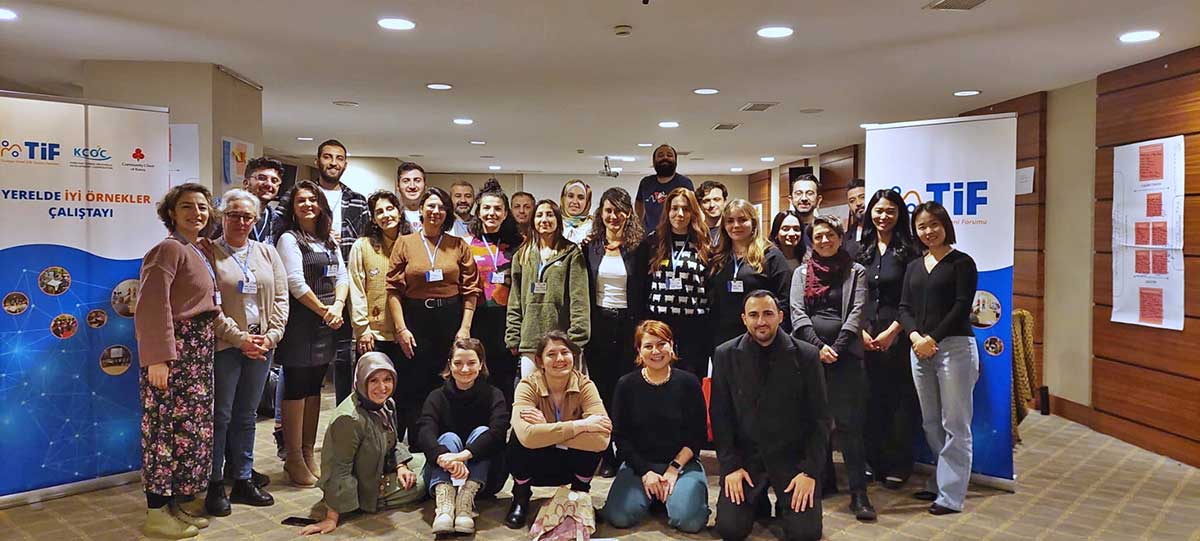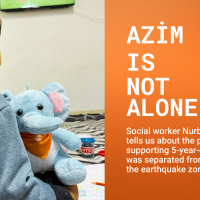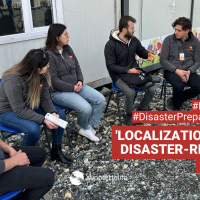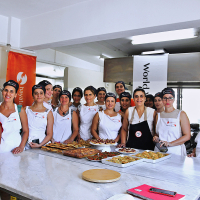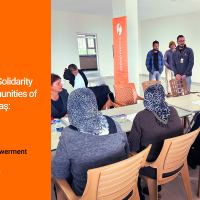The Local Humanitarian Forum (LHF), an assembly of civil society organizations operating in the disaster-stricken areas, organized a 'Local Good Practices Workshop' on January 21-22 in Gaziantep.
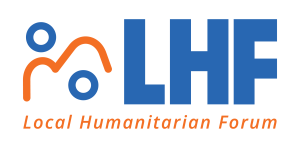 Local Humanitarian Forum, LHF, hosted by the Support to Life (STL) and the Civil Society Development Center (STGM), organized a two-day workshop aimed to enhance the visibility of NGOs operating in the earthquake-affected provinces of Adıyaman, Malatya, Gaziantep, Hatay, and Kahramanmaraş, facilitate their access to resources, and create a platform for experience sharing through a two-day workshop.
Local Humanitarian Forum, LHF, hosted by the Support to Life (STL) and the Civil Society Development Center (STGM), organized a two-day workshop aimed to enhance the visibility of NGOs operating in the earthquake-affected provinces of Adıyaman, Malatya, Gaziantep, Hatay, and Kahramanmaraş, facilitate their access to resources, and create a platform for experience sharing through a two-day workshop.
The first day of the Local Good Practices Workshop featured a series of panels with the participation of 16 selected organizations recognized as good practices. The second day included public sessions where 123 representatives from international and local NGOs, UN agencies, donor organizations, government institutions, and local communities and initiatives participated.
The workshop began with an opening speech by Sema Genel Karaosmanoğlu, Director of Support to Life. Karaosmanoğlu, while outlining the general framework and priorities of LHF, emphasized solidarity, stating, "Today, you will hear the word 'solidarity' frequently, solidarity among people, solidarity groups, solidarity associations... Perhaps, this word best reflects the spirit of local civil society. We have witnessed that investing in solidarity after a disaster is the magical key to healing and recovery." She also emphasized the importance of revealing and supporting local strength, making the outcomes sustainable.
Following this, representatives from the network supporting LHF, Junyoung Park from the Korean Council for Overseas Cooperation of NGOs (KCOC), and Serkan Denli, Manager of STL Localization Unit, delivered speeches underscoring the importance of localization.
The first panel of the workshop, titled 'Disaster Response, Civil Society, and Coordination,' included representatives from the Adıyaman Civil Society Solidarity Group, Disaster Psychology Platform, Zero Discrimination Association, and Serinyol El Ele Solidarity Association. The session discussed the significance of local coordination during the disaster process, the importance of being local in times of disaster, and familiarity with the field.
The second panel, titled 'Working with Vulnerable Groups in Emergency Situations,' included representatives from the Disaster Autism Solidarity Network, Malatya Şam Association, Civil Dreams Association, and Bonyan Youth and Development Association. The organizations emphasized the advantage of already working with vulnerable groups before a disaster, highlighting the importance of immediate intervention during emergencies.

The third panel, 'Women-Youth-Children Studies,' featured representatives from Buradayız Hatay Association, Post-Disaster Women Support Program, Eksi 25 Association, and Kahta Change Assembly (KADİM). The session pointed out the inadequacy of services provided to young groups after disasters. It also emphasized the importance of local organizations being able to provide services such as psychosocial support, basic needs, and health from the initial moments of an earthquake, using pre-existing collaborations.
The final panel, titled 'Collaborations, Partnerships, and Access to Finance,' included representatives from Toprak Ana Women's Cooperative, Solidarity People Association, Urban Development Association (KEGED), and Earthquake Solidarity Association. Focusing on collaborations of local organizations, the panel discussed the instructive yet sometimes challenging nature of working with international organizations. It highlighted the importance of local organizations determining their needs in the post-disaster funding process.
The closing remarks of the workshop were delivered by Tezcan Eralp Abay, General Coordinator of the Civil Society Development Center, who provided insights into developments related to localization in Türkiye and internationally. He also underlined the impact of active citizenship and democracy on localization.
About LHF
Local Humanitarian Forum (LHF) was established as an offshoot of Localization Advocacy Group (LAG) in order to help integrate local NGOs/CBOS/CSOs to the newly established OCHA-led humanitarian coordination structure in response to the 6 February earthquake disaster in Turkiye. The OCHA coordination mechanism was launched after the announcement of the Flash Appeal 10 days following the February 6th earthquake. Although LHF was established with the aim of being included in the OCHA system, at this point it is preparing to offer more to its stakeholders. LHF representatives continue their work in Adıyaman, Hatay, Kahramanmaraş, and Malatya, identifying the needs of local organizations.
Hosted by Support to Life and operating under the joint secretariat of Support to Life, LHF has 73 members at the national level and a broad communication and stakeholder network at the local level, including NGOs and networks operating in the four most affected provinces by the earthquake.
Thank you for reading the article and for coming this far. Now you can support life while you are here.
